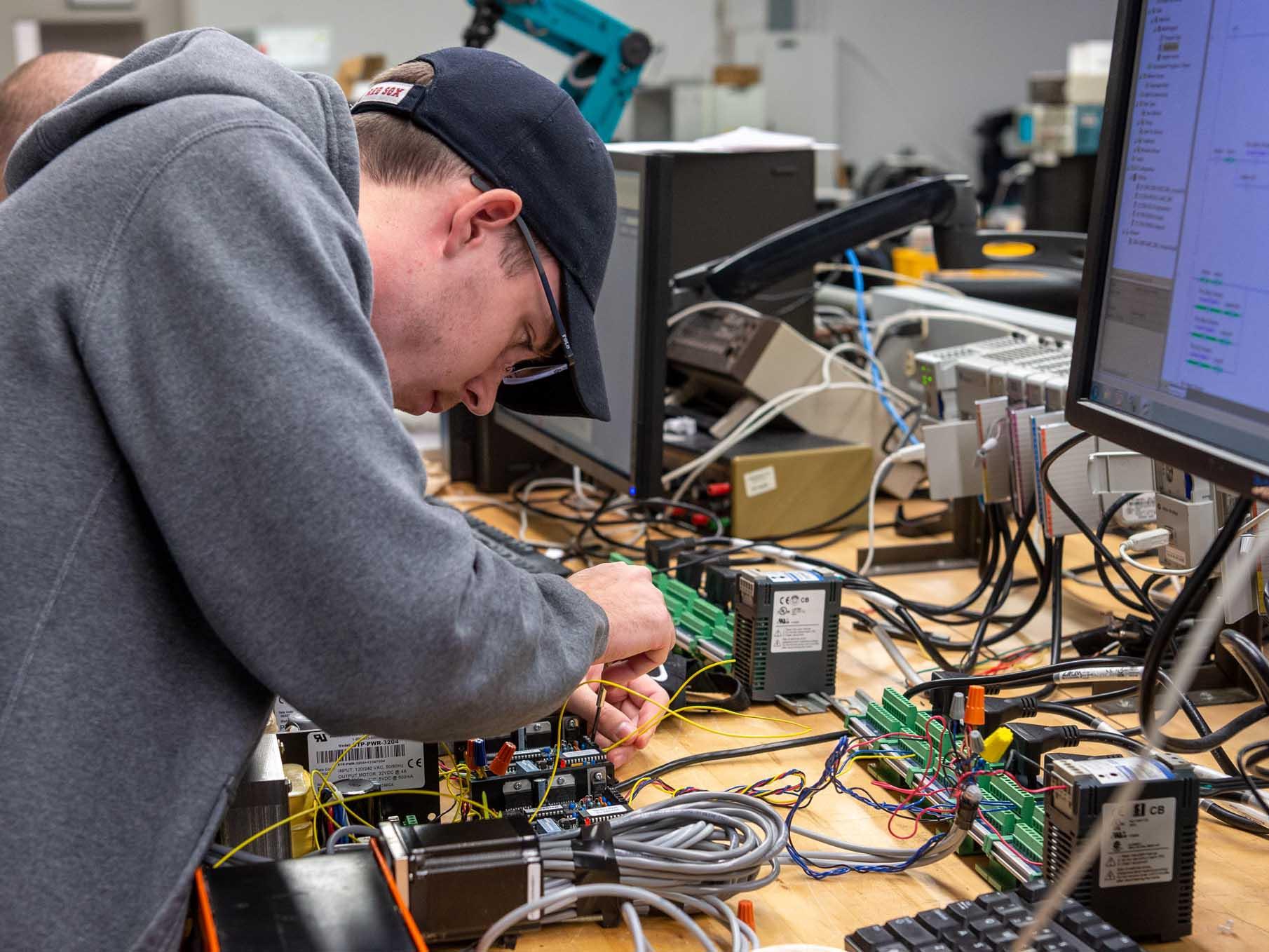Bachelor of Engineering (B.E) is a program offered across many colleges in India. The program is very popular among students who want to become engineers. The duration of the program is 4 years, which comprises 8 semesters each. The program can be in 5 years if a student has enrolled in an integrated program. The B.E programs impart theoretical knowledge to the students. It also covers the engineering aspects of science. The undergraduate degree prepares students for the theory most part. The applied aspect and technical knowledge are for post-graduation courses.
B.E and B. Tech – know the difference

Often the programs sound the same. Yet, the programs are very different. B.E program is a knowledge-based program. While B.tech is more of a skill-oriented program. The B.E program is more theory-based and focuses on creating conceptual clarity. So, the focus of the program is more hands-on experience of the concepts. The syllabus of both the programs is similar. It is advisable to go through the syllabus in-depth. Check out the areas of interest before taking admission to either of the courses.
Eligibility for the B.E program
- Students must clear their 12th standard examination from a recognised university
- Physics, Chemistry, and Math studied till the 12th standard
- A minimum of 50 percent marks must be obtained in the 12th standard exams. Few colleges require 75 percent marks
- Various entrance tests have to be applied to become eligible for the course.
List of entrance tests for the B.E program
Colleges in India accept the marks of popular entrance tests. A few colleges do have their own entrance exams. Given below is a list of tests that are popular among students in India.
- Joint Entrance Test (JEE) – MAINS- Tests conducted for admission to IITs in India
- Joint Entrance Test (JEE) – ADVANCED
- MH CET – Tests conducted to secure admission in colleges in Maharashtra state
- K CET – Tests conducted by the Karnataka state
- BIT SAT – Tests to get admission to BITS institutes
- TNEA – Tests conducted for admission to engineering colleges in Tamil Nadu
- UPSEE – Uttar Pradesh state entrance test
- SRMJEE- Tests conducted to secure admission in SRM institutes
Admission procedure for the B.E program
Students who want to study engineering can secure admission in 2 ways. Direct admission to the program after completion of the 12th standard. The result of the entrance test is mandatory to secure admission. Students can take admission in their choice of college after the counseling session. Students can also secure admission by doing their diploma in engineering. These students join the diploma program after class 10th exams. Instead of studying for 11th and 12th, class they started studying engineering. The diploma is a 3-year course. On successful completion of the course, students can join the B.E program in the 2nd year. This route is seldom chosen.
Course Fees for the B.E program and subsequent post-graduation
There are 6052 engineering colleges in India. Every year around 25 lakh students complete their course. The course fees vary from college to college and also sometimes on the steam chosen. On average, the fees range from 45 thousand to 1 lakh per year. Many times students pursue further studies after completion of the B.E program. Students opt for M. Tech or M.S. Generally, both streams are ideal. The M.S program is mostly planned by students who wish to study abroad. The cost of a post-graduate program also varies from country to country. The USA is the preferred country to do M.S. To study overseas, students have to clear GRE, TOEFL/IELTS exams. The cost of the program depends on the university applied. The program costs around 50 to 70 lakhs in the USA.
Branches of specialisation in the B.E program

Technology is moving at a fast pace. Due to this newer branches have been introduced. In today’s time, a total of 40 branches are offered as specialisation.
The popular streams are as follows:
- B.E – Mechanical Engineering
- B.E – Electrical and Electronics Engineering
- B.E – Civil Engineering
- B.E – Electronics and Communication Engineering
- B.E – Computer Science and Engineering
- B.E – Information Science and Engineering
- B.E – Mechatronics Engineering
- B.E – Biomedical Engineering
- B.E – Chemical Engineering
- B.E – Marine Engineering
- B.E – Mining Engineering
- B.E – Aeronautical Engineering
- BE – Production Engineering
- BE – Computer Science
- BE – Computer Engineering
- BE -Automobile Engineering
The new streams that are now being introduced are as follows:
- B.E – Nanotechnology Engineering
- B.E – Aerospace Engineering
- B.E- Biomechanical Engineering
- B.E – Bioinformatics Engineering
- B.E – Automotive Engineering
- B.E – Robotics Engineering
- B.E – Microelectronic Engineering
- B.E – Environmental Engineering
- B.E – Material Science Engineering
- B.E – Agricultural Engineering
- B.E – Print Technology and Engineering
- B.E Industrial Engineering
- B.E – Systems Engineering
- B.E – Manufacturing Engineering
- B.E – Petroleum Engineering
- B.E – Geological Engineering
- B.E – Nuclear Engineering
- B.E – Ceramics Engineering
- B.E – Software Engineering
Syllabus for the B.E program
The syllabus for only the first is common for all branches. 2nd year onwards subjects vary. A synopsis of subjects covered in the first year is as follows:
- Engineering Physics
- Calculus of Linear Algebra
- Engineering Chemistry
- Elements of Civil Engineering & Mechanics
- Engineering Graphics
- Basic Electrical Engineering
- Technical English
- Advanced Calculus and Numerical Methods
- C Programming
- Basic Electronics
- Elements of Mechanical Engineering
- Environmental Science
- Basic Ethics and Laws
The salary scale for B.E graduates
The salary scale depends on the branch chosen, college, and the marks obtained all the years. The top streams of engineering that attract good pay are Computer science and information technology, Aeronautical engineering, Chemical engineering, Mechanical engineering, Electronics and telecommunications engineering, and Biotechnology engineering. The average salary can range with a start of 40 thousand per month from 6 to 7.5 lakhs per annum. With experience, the pay scale will soon see the upper limit.
Popular job profiles offered to B.R graduates
Job opportunities are immense for graduates. Since the streams are varied. The job profiling is exhaustive. We shall see the popular profiles that are offered. Normally job opportunities are offered to students through campus placements. A candidate has to clear the round of aptitude tests, and personal interviews before a company can offer them jobs. The common list is as follows:
- Software developer
- System/data analyst
- Administrator – database
- Software engineer
- Business analyst
- Assistant engineers
- Technical trainer
- Testing engineer
- Railway engineer
- Aerospace engineer
- Structural engineer
- Sound engineer
- Material engineer
- Mechatronics engineer
- Site engineer
- Construction engineer
The top engineering college of India to pursue the B.E program
As mentioned before India has around 6 thousand plus colleges. Given below is the list of the top 10 colleges preferred by students.
- IIT – Delhi
- IIT – Bombay
- IIT – Kharagpur
- IIT – Kanpur
- BITS – Pilani
- College of engineering – Guindy
- NIT – Karnataka
- VIT university
- College of engineering – Pune
- IIT – Hyderabad
Conclusion
Choosing a career option may be tough for a student. Such a decision has to be taken with a lot of deliberation. Engineering is always a good choice. With the right amount of knowledge and interest, it proves to be beneficial for many students. Students opt to study abroad after graduation. Some students run successful businesses via start-ups. Few engineers can join the defense sector or the PSUs, or become IAS officers.
FAQs
The Indian education system owes credit to the British era. During the pre-independence times, a BSc engineering degree was in force. This was due to the absence of the B.E or the B. Tech programs. Unlike the B.E or B. Tech programs, it was a 3-year degree course. This course was, however, converted to B.E. The previous education system changed drastically in the past few decades. There are still very few colleges in India that offer BSc engineering degrees. Kindly check the degree credibility before enrolling in the program BSc engineering degree was in force
After graduation, the student has to make up his/her mind about what to do further. The student has to decide if he/she wants to study further or take up a job. In this decision, the following avenues will open.
Study further: After graduation, the student can study further by doing a postgraduate course and start preparing for entrance tests like GRE and TOEFL. These exams are required to do M.S on foreign shores. Students could also give GATE for doing M.Tech. Students opt for the GMAT exam to pursue MBA overseas with some work experience or exams like CAT to pursue MBA in India.
Take up a job: Jobs are offered via campus placement. Students can hunt jobs directly by placing their resumes in companies looking for engineers.
Some students become entrepreneurs with start-ups. Some students start preparing for government jobs and prepare for exams like IAS or PCS etc.
While mechanical engineers are always in demand. It is surprising that mechanical engineering scope transcends the borders and is helpful in other branches too. The scope of mechanical engineers is explained below industry-wise.
Aerospace sector – Mechanical engineers are required to design, operate and maintain aircraft
Electronics sector – They are required to design and manufacture components
Marine sector – to build and maintain the vessels. For the same reason, mechanical engineers are in demand in the defense sector too
The other sectors are chemical, construction, railway, and automotive.
GATE is the abbreviated form of Graduate Aptitude Test. GATE scores are required to do M.Tech in IITs and NITs in India. A good GATE score could also help in getting jobs in PSUs. The scores are scaled to 1000 though the exam paper is of 100 marks only. Few universities in Singapore and Germany accept GATE scores also.
Studying engineering can be very expensive. Other than the tuition fees the cost of living is high too. If a student opts for tuition fees at free universities like in Germany, then it becomes advisable.










Recent Comments